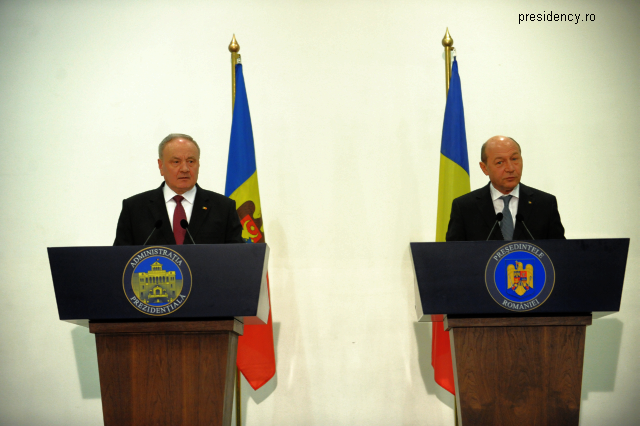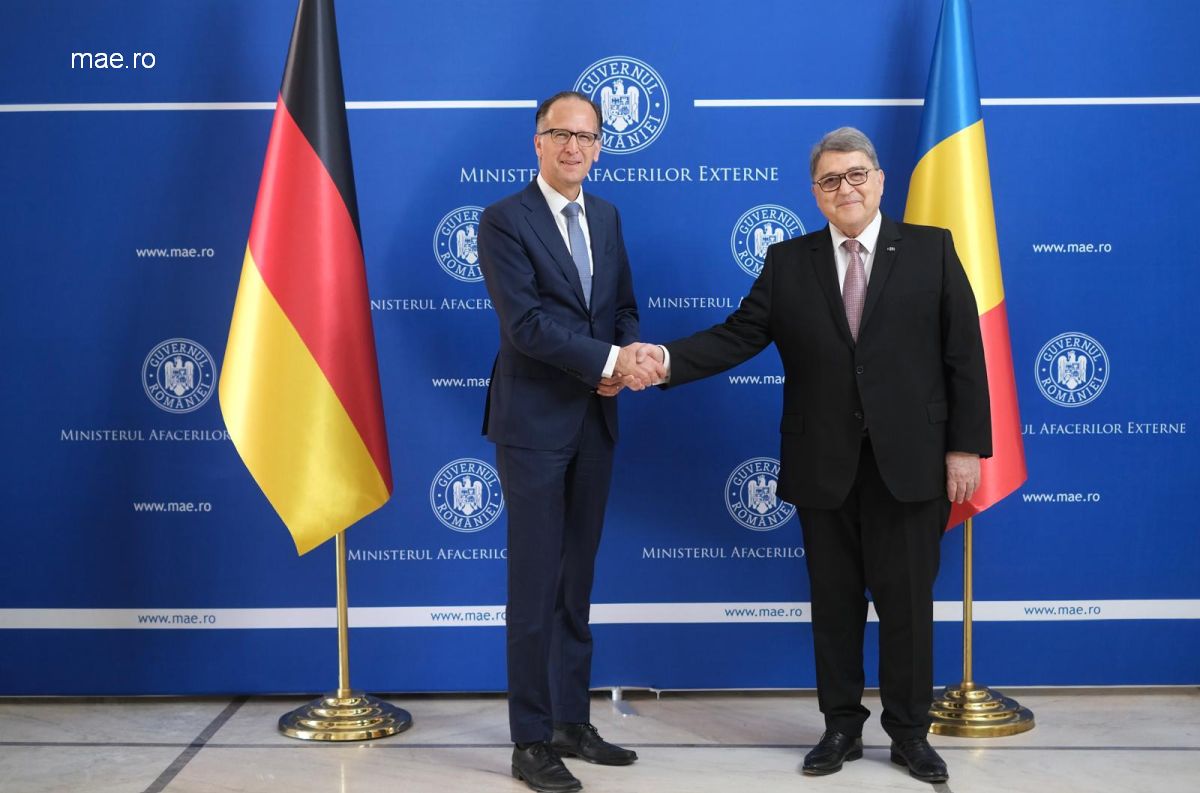Romania, the Republic of Moldova and the Ukrainian Crisis
Less than 48 hours since the signing in Moscow of the agreement under which the Crimean peninsula was annexed by the Russian Federation, the president of the Republic of Moldova, Nicolae Timofti met in Iasi, north-eastern Romania, with his Romanian counterpart Traian Basescu. The main topic on the agenda of talks was the crisis in Ukraine and the consequences it may have on the neighboring countries.

Valentin Țigău, 20.03.2014, 13:03
Less than 48 hours since the signing in Moscow of the agreement under which the Crimean peninsula was annexed by the Russian Federation, the president of the Republic of Moldova, Nicolae Timofti met in Iasi, north-eastern Romania, with his Romanian counterpart Traian Basescu. The main topic on the agenda of talks was the crisis in Ukraine and the consequences it may have on the neighboring countries.
The Republic of Moldova has not recognized Crimea’s annexation and has termed Russia’s decision as a severe violation of international law. Moldova is rightfully worried about a potential Russian expansion aimed at recreating the former USSR, if we think of the self-proclaimed Republic of Transniestr, on its eastern border with Ukraine, where separatists call for joining the Russian Federation, a move that would be supported by Russia, as representatives of the State Duma have repeatedly stressed. At the press conference held after the meeting, Romanian president Traian Basescu voiced his confidence that Russia’s expansion would not end with Crimea. Against this background, Nicolae Timofti has called on the EU to set a timetable and a clear deadline for the accession of the Republic of Moldova. Chisinau is currently in a preliminary stage to signing the association and free trade agreements with the EU, and Romania’s lobbying the European institutions at this time may be crucial. Nicolae Timofti:
“I have asked president Traian Basescu to support Moldova’s bid at EU level. We have exchanged views about the conflict in Transdniestr. The interest of both parties, just like that of the entire international community, is to maintain peace and calm in the area, and to secure constructive approaches.”
In turn, Traian Basescu underscored that only a faster pace of the European integration process would guarantee the security of the Republic of Moldova. Traian Basescu:
“The EU should not be caught by surprise anymore. We were indeed caught off guards by Georgia back in 2008 and we are now surprised by the Crimea episode, but the EU should understand that signals coming from the region, which are not new, must be treated with due consideration and the expertise regarding the region should be acquired here, not on the other side of the Atlantic.”
Due to the complicated and tense regional context, the EU is actually forced to make bold decisions, and stepping up the integration process of the former Soviet countries that wish to become part of the EU is one such decision.






























